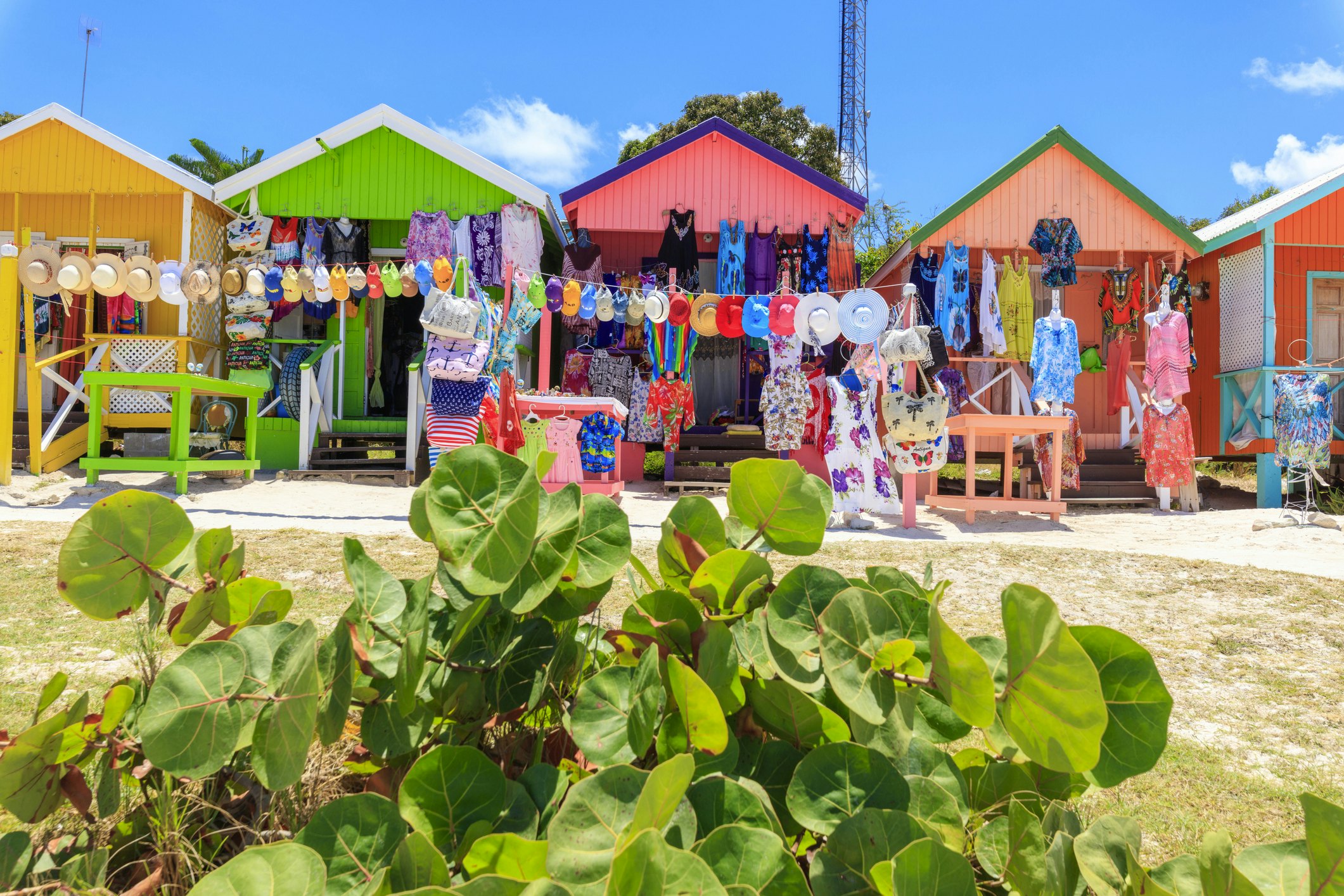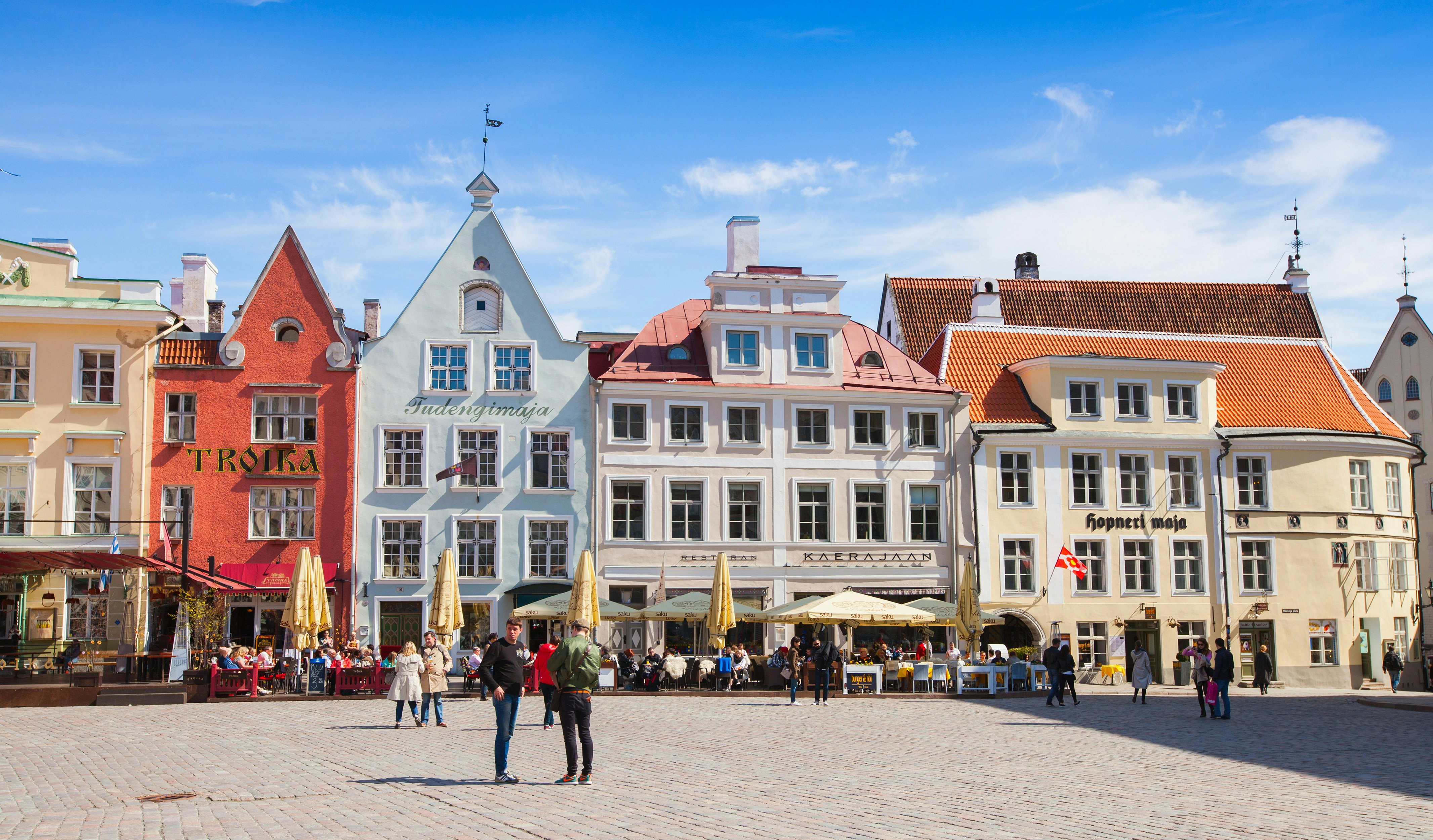
Has your job gone remote? These countries are welcoming digital nomads
Jul 31, 2020 • 12 min read

Countries around the world are putting out welcome mats for digital nomads ©Chz_mhOng/Shutterstock
Traveling the world as a digital nomad has undoubtedly grown more complicated during the COVID-19 pandemic, but a growing number of countries have announced remote work programs.
The number of remote workers worldwide has soared thanks to various stay-at-home orders, and the new programs are generally available not only to freelancers and the self-employed, but also those employed remotely by a single company or business-owners. The rules vary so it is vital to do your research, and here is our guide to some of the new visas available to digital nomads.
Antigua & Barbuda
The entrancing twin islands of Antigua & Barbuda are known for their pink and white-sandy beaches and crystal clear water. They have announced a digital nomad visa called the Nomad Digital Residence for remote workers who can show the means to support themselves. They must earn at least $50,000 (€42,355) per year and can stay for up to two years.
The visa fee is $1500 (€1270) for one person, $2000 (€1694) for a couple and $3000 (€2541) for a family of three or more. Applicants must currently be employed or self-employed, while paying income taxes to their place of residence or native country. Further information on the Nomad Digital Residence is available here.

Aruba
Aruba has announced a new scheme that allows US visitors to book a stay for up to three months and work remotely in beautiful surroundings. The One Happy Workation package offers complimentary wi-fi, breakfast, all-inclusive food and beverage options and access to special local experiences. Visitors can choose from any participating accommodations, ranging from small hotels to large resorts and private villas.
Those who embark on the program have to be employed by a company or be self-employed in their home country. In addition, they may not perform work that include any activities that are illegal in Aruba. Incidentally, working is not mandatory to stay for the three months. Further information on the One Happy Workation package is available at here.

Barbados
Barbados is famous for its fine powdery sand beaches and brilliant turquoise bays, as well as a Unesco World Heritage–listed capital and wild surf on its east coast. It has introduced the “Barbados Welcome Stamp,” which is a special 12-month visa for remote workers employed by a company registered and operating outside of Barbados.
The visa fee is $2000 (€1694) per person and $3000 (€2541) for a family, and those who embark on the program can choose from a wide range of accommodation from budget-friendly studios to beachfront luxury condos. Further information on the Barbados Welcome Stamp can be found here.

Bermuda
In spite of its tiny size, Bermuda has much to offer, including being one of the world's top diving destinations and having many forts to attract history buffs. It has a residency program called "Work From Bermuda" that allows digital nomads and remote workers to stay in the country for up to a year.
Applicants must be at least 18 years old and demonstrate employment with a legitimate company or their own company registered and operating outside of Bermuda. They must not have been convicted of a crime in Bermuda or elsewhere and must possess valid health insurance coverage. Applicants must have substantial means and/or have a continuous source of annual income. The application process costs $263 (€223) and further information on Work From Bermuda is available here.

Cayman Islands
The Cayman Islands have introduced the Global Citizen Concierge Program, which allows remote workers to stay for up to two years. Once there, they can discover its lush forests, diverse birdlife, caves and pristine beaches, as well as its underwater walls and accessible shipwrecks.
Applicants must be employed outside of the Cayman Islands and must provide proof of an annual salary of at least $100,000 (€84,710) or $150,000 (€127,064) for couples. They must provide a notarized bank reference, statement of police clearance and proof of health insurance. Further information on the Global Citizen Concierge Program is available here.

Croatia
For those who take up its short-term residency permit, Croatia's coastline is indisputably its main attraction with more than 1000 islands located along its eastern coast. It also has sandy and shingly beaches and historic buildings and fortresses to explore. It has expanded its short-term residency permits to include travelers from outside the European Union. The applicants must work remotely for a company that isn't registered in Croatia and doesn't perform work or provide services to employers there. Temporary stays are granted for up to a year, and close family members may join the applicant there.
Applicants must not have a criminal record and are required to enclose a copy of a valid travel document, proof of health insurance and a contract of employment or other document proving their work arrangements. They must also provide proof of means of subsistence during their stay, and submit a bank statement or proof of regular income to their account in which they must have a minimum of €3802 (€3221) available for a period of 12 months.
Further information on the short-term residency permits to remote digital workers can be found here.

Dominica
Those looking for a differentplace to work from home may be interested in the new visa offering from the Caribbean island of Dominica. The "Work in Nature" visa allows digital nomads and remote workers to relocate there for up to 18 months to earn their living in the sunshine. Nicknamed ‘the nature island,' Dominica is popular with independent travelers and eco-adventurers. It is known for its rainforest-shrouded volcanoes and sulfurous hot springs, as well as the Caribbean's first long-distance hiking trail.
Applicants for the island's new visa scheme must be at least 18 years of age, must expect to earn an income of $50,000 (€42,100) or more over the following 12 months or have a means of supporting themselves, their spouse/partner and any dependants. Families as well as individuals are encouraged to apply for the visa, with Dominica offering a family bundle programme that encourages children to attend school on the island.
In order to apply, applicants must make a non-refundable application fee of $100 (€84), while the visa itself is $800 (€673) for single applicants and $1200 (€1011) for families. Those interested in applying for the Work in Nature visa should visit its website here.

Dubai
The first Middle Eastern city to make the Unesco list of creative cities of design, Dubai is a bustling microcosm peacefully shared by cultures from all corners of the world. It is offering a virtual working program that is valid for a year. Applicants must earn the equivalent of at least $5000 (€4236) monthly, and must provide proof of employment from a current employer with a one-year contract validity, or proof of ownership of a company.
They must also have health insurance with UAE coverage validity. The application process costs $611 (€518), and the program grants access to all the standard services that residents benefit from, including telecoms, utilities and schooling. Further information can be found here.

Estonia
Estonia's sparsely-populated countryside and extensive swathes of forest provide spiritual sustenance for nature-lovers, and its capital Tallinn is now one of the continent’s most captivating cities. Estonia is particularly strong on accommodating remote workers, and has introduced a visa program for digital nomads.
Applicants must have an active employment contract with a company registered outside of Estonia, conduct business through their own company registered abroad, or work as a freelancer for clients mostly outside of Estonia. Their income must meet the minimum threshold for six months preceding the application, which is currently $4131 (€3504). More information and application forms can be found here

Georgia
Georgia's rich culture and diverse landscapes make it an ideal destination for anyone loving history and nature on the grandest of scales. In recent years, its capital, Tbilisi, has emerged as one of the coolest cities in Europe. The small nation has launched its "Remotely from Georgia" program. It is designed for freelancers, full-time employees or business owners from designated countries who are able to stay in Georgia for at least 360 days without a visa per their passport or other travel document.
They must prove they have the financial ability to pay taxes while staying in Georgia and should have a minimum monthly salary of $2000 (€1694). They must have health insurance for the period of time that they are going to spend in Georgia, and pay for a two-week quarantine upon arrival. Further information on Remotely from Georgia can be found here.

Iceland
Iceland is a land of awe-inspiring natural landscapes, with its geysers, ice-covered volcanoes and glaciers. Its "Work in Iceland" program allows teleworkers to stay for six months, and it has expanded its long-term visa program beyond the European Schengen area. It is available to any foreign national not required to have a visa to enter Iceland, and successful applicants must be permanently employed by foreign companies and meet supplemental health insurance requirements.
Those who are granted it can bring their families with them without having to move their legal domicile to the country or obtain Icelandic ID numbers. It's a good time to go and have a socially-distanced stay, because under normal circumstances, the country can host more than six times its population each year. Further information on the Work in Iceland program is available here.

Madeira
Nicknamed the Pearl of the Atlantic, the tranquil Portuguese island of Madeira has created what it terms a "digital nomad village." The first phase of Digital Nomads Madeira began in February in Ponta do Sol, which is situated on the south coast of the Madeira island. The nomad village offers travelers a free working space with a desk and chair, access to a Slack community and free internet from 8am to 10pm daily at the John do Passos Cultural Centre in the village center.
The tiny volcanic island is geologically dramatic, filled with exotic color and warmed year-round by the Atlantic sun. It is also hosting fun events for the nomads, as well as putting on events and facilitating access to the local community. The nomads who must commit to staying for at least a month, and the project has partnered with local businesses such as real estate, hotels and rental car companies for them to use. For further information on the Digital Nomad Village, please see its website here.

Mauritius
Working from a tropical island certainly sounds idyllic, which may attract remote workers to take up Mauritius' renewable premium travel visa , which allows eligible non-citizens to stay for a maximum period of a year. They must come as a visitor, a retiree, a parent of children studying in Mauritius, or a professional seeking to work remotely.
Applicants should produce proof of their long-stay plans and have sufficient travel and health insurance for the initial period of stay. They are not allowed to enter the Mauritian workforce while there, and their principal place of business and source of income should be located outside the island. Documentary evidence to support their application, such as purpose of visit, accommodation details and other basic immigration requirements also need to be supplied.
Mauritius is located more than 1000km off the eastern coast of Madagascar, and is known for its beaches and luxury resorts. It also offers hiking in its forested and mountainous interior and world-class diving and snorkeling offshore, and is a great destination for wildlife enthusiasts. Find out more here.

Mexico
Mexico is offering a "Temporary Resident Visa" to those who own a location independent business or work remotely for a company based outside Mexico. It lasts for one year and can be renewed for a further three years. Applicants must prove a monthly income of at least $1620 (€1372) or a bank account balance of $27,000 (€22,871).
Mexico is a place where life is lived largely in the open air, and those who temporarily relocate there can enjoy its jungles, wildlife-rich lagoons, snowcapped volcanoes, deserts and 10,000km of coast. Further information on the Temporary Resident Visa can be found here.
Montserrat
The Caribbean island of Montserrat has declared itself open to welcome digital nomads and work-from-home professionals to call it “home” for up to 12 months. The idea of the year-long "Montserrat Remote Workers Stamp" is to give professionals and entrepreneurs the opportunity to experience its brand of work-life-vacation balance.
Application fees for the program are $500 (€415) for individuals and $750 (€623) for individuals accompanied by a maximum of three family members. Candidates must show proof of full-time employment, an annual income of minimum $70,000 (€58,140) and up-to-date health insurance coverage for applicants and accompanying family members. Located in the Eastern Caribbean with a total area of just 39.5 square miles, the green mountainous Montserrat possesses a great network of hiking trails and dark-sand beaches. It also has an active volcano, the spectacular Soufriere Hills Volcano.
For further information on the Remote Workers Stamp, please visit the website here.

Tulsa
As part of its aim of building a community of remote workers, Tulsa has a homeownership initiative that will offer selected workers $10,000 (€8471) towards the purchase of a home. The Oklahoma city is also offering those who move there social and networking opportunities, group activities, connections to local volunteering, civic engagement opportunities and more.
To be eligible for the "Tulsa Remote" program program, individuals must be a permanent resident of the US and currently living outside Oklahoma. They must show consistent income, have the ability to work remotely and commit to moving to and living in Tulsa for at least one year. They will be offered space at a co-working community, whch will allow them to collaborate with other local entrepreneurs, remote workers and digital nomads.
The program also offers virtual and in-person visits for members to get acquainted with neighborhoods, amenities and locations that will fit their lifestyle, including a $500 travel reimbursement. Airbnb is also partnering with Tulsa Remote to help members “try before they buy,” with a $150 Airbnb coupon for a stay in the Tulsa neighborhood of their choice. Applications and more information on Tulsa Remote can be found here.

Considering the digital nomad lifestyle? Buy Lonely Planet's Digital Nomad Handbook.
You might also like:
7 tips for remote work from digital nomads around the world
Everything you need to consider before becoming a digital nomad
10 reasons why you should become a digital nomad in 2021






















